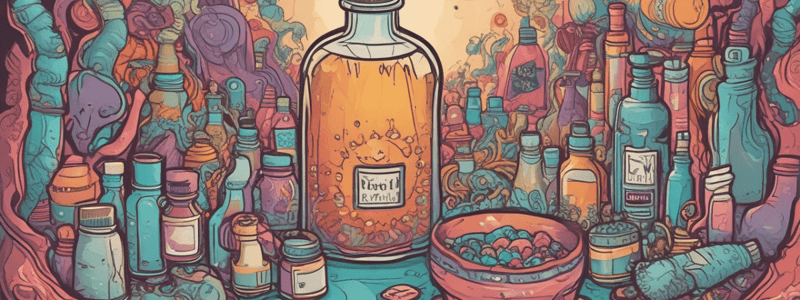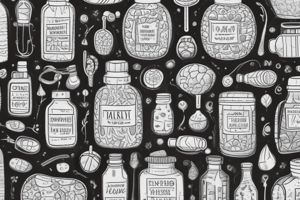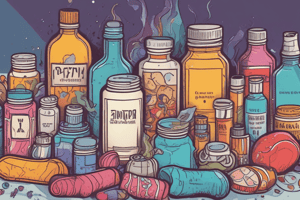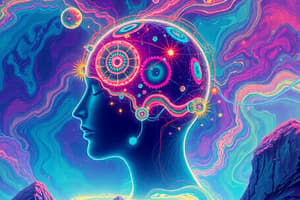Podcast
Questions and Answers
Match the following classes of psychoactive drugs with their effects:
Match the following classes of psychoactive drugs with their effects:
Stimulants = Reduce activity of the Central Nervous System (CNS) Depressants = Alter sensation and perception Opioids = Increase activity in opioid receptor neurons Hallucinogens = Block the reuptake of dopamine, norepinephrine, and serotonin
Match the following psychoactive drugs with their definitions:
Match the following psychoactive drugs with their definitions:
Stimulants = Chemicals that produce euphoria and slower breathing Depressants = Reduce the activity of the Central Nervous System Opioids = Drugs that block neurotransmitter reuptake Hallucinogens = Drugs that alter sensation and perception
Match the following psychoactive drug classes with their primary mechanism of action:
Match the following psychoactive drug classes with their primary mechanism of action:
Stimulants = Increase neurotransmitter levels in synapses Depressants = Enhance inhibitory neurotransmission Opioids = Activate opioid receptors in the brain Hallucinogens = Interfere with serotonin pathways
Match the following drugs to their typical effects:
Match the following drugs to their typical effects:
Match the following terms with their corresponding attributes:
Match the following terms with their corresponding attributes:
Flashcards are hidden until you start studying
Study Notes
Stimulants
- Operate by blocking reuptake of neurotransmitters: dopamine, norepinephrine, and serotonin.
- Affect the synapses in the central nervous system, resulting in heightened alertness and energy.
Depressants
- Reduce overall activity of the Central Nervous System (CNS).
- Lead to effects such as relaxation, lowered inhibitions, and sedation.
Opioids
- Chemicals that enhance activity at opioid receptor neurons.
- Key effects include euphoria, pain relief (analgesia), slower respiratory rate, and potential side effects like constipation.
- Commonly used for pain management but carry risks of addiction.
Hallucinogens
- Psychoactive substances that significantly alter a person's sensations and perceptions.
- May produce visual or auditory hallucinations and changes in thought processes and emotions.
Studying That Suits You
Use AI to generate personalized quizzes and flashcards to suit your learning preferences.




